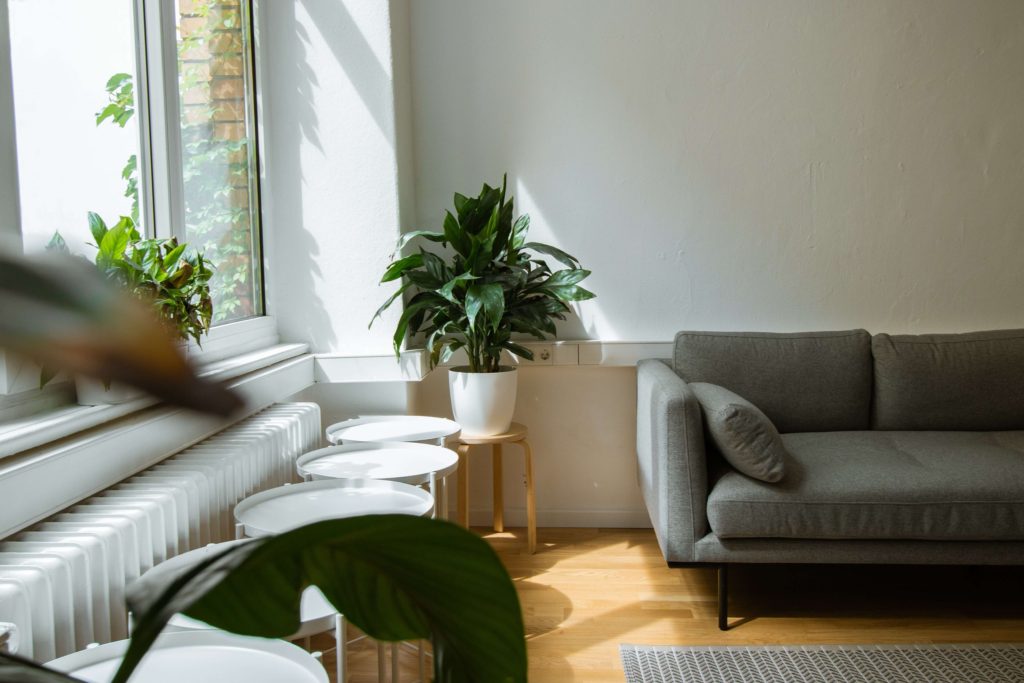The Practical Guide to Finding a Therapist
Tips and tricks to help you get help.
When I was 24 I decided to see a therapist. At the time I was working through a combination of work and family-related issues and I thought that talking things through with someone would help.
The only problem was that I had no idea where to begin.
What should I look for? How would I know if I’d found someone who was a good fit?
I lucked out and found a wonderful therapist who helped me a lot, but I often think back to how unsure I was where to start.
A lot of people think about therapy as something you do when you’re going through something big, like a death or divorce. But really, therapy can be right at any time.
You could be going through a life transition, perhaps some part of your life isn’t where you would like it to be, or maybe you feel like something is just off. Therapy can be beneficial in all of these circumstances.
Here are some tips on how to find a therapist, even if you’re a complete beginner.
1. Tools
There are several great tools you can use to find the right therapist. I am only going to cover the two that I have experience with here, but feel free to check out other options. I’ll mention a few below.
Betterhelp
Betterhelp offers online and text-based therapy. One of Betterhelp’s features is allowing you to get very specific in your preferences.
You can filter providers in many ways, including by gender, race, and age. This is a nice feature because it’s important to feel comfortable with the person you’re talking to.
Betterhelp supports both live video and message-based therapy.
Psychology Today
Psychology Today offers a free digital directory of therapists. Navigate to the homepage and click “Find a Therapist” along the top, put in your zip code, and you’ll get a range of options in your area.
Each therapist has a bio that you can read to get a feel for their background and style. Read a few and pull out a few options that you vibe with.
Other options I know of and have heard good things about, but don’t have direct experience with, are ZocDoc, Alma, and Headway.
Use your network
This can be a great way to find therapists. You might ask your friends, primary care doctor, or a trusted colleague for referrals and follow-up from there.
Try a clinic
Clinics are a good choice if you’re open to working with someone newer in the profession. Your local university’s psychology program will have a clinic where newer therapists train under the guidance of a more experienced practitioner.
Granted, this is geography-dependent. If you don’t live near a university then this won’t work.
Clinics are usually a little easier to get into than many private practices and tend to be less expensive as well.
Employer-Sponsored Options
Many employers increasingly offer Employee Assistance Programs (or EAPs) that include a set number of free or discounted therapy sessions. EAPs can allow you to see a therapist quickly without having to do the leg work of finding one.
2. How do you know which therapist is right for you?

Strangely, finding a therapist can be a little like dating. I would recommend sourcing 5-6 options using the methods described above. Reach out by phone or email. Talk logistics first. If you get a no for any of these, no problem. Just move on to the next one. Questions to ask are:
- Are they taking new patients right now?
- Do they take your insurance?
- Do your schedules sync up?
You can also get a sense of whether the therapist is aligned with your personal preferences.
For example, maybe you work in education or medicine and you want someone with experience supporting clients in your profession. Or you might want someone who has experience with the LGBTQ+ community.
Many therapists have specialties as well, such as substance abuse and addiction. Look for the person whose experience is best aligned with your needs.
Trust your intuition
If you get a bad feeling during the first phone call then it’s a sign this might not be the right person for you. Trust that. This is okay.
There are a lot of options out there, and it’s normal to go through a few options before you find someone you’re comfortable with.
Ultimately, this is a relationship. There needs to be chemistry; use your intuition to assess whether you’ve found someone you connect with.
3. How do you pay for therapy?
Many therapists will offer the first session either free or discounted. This allows you to get a feel for whether you’re a good match before you make a financial commitment.
Insurance often covers part of the cost of therapy, but not always. Make sure you ask upfront about this.
In some cases, therapists will give you receipts so that you can seek reimbursement directly from your insurance provider. This is annoying, but it is an option. Essentially, you’ll send in your receipts and your insurance provider will send (or direct deposit) a check.
I’ve also seen therapists bill on an income-based sliding scale. They may not advertise this upfront, so you’ll have to ask, but it can be a great option for making therapy work on a tighter budget.
If money is tight, working with a clinician can be a great option. Again, this person will still be training, but they will be supervised by someone more experienced.
4. Credentials
Make sure to check your therapist’s credentials. Look for:
- Licensed professional counselors (LPC) who have a master’s degree in counseling or psychology
- Licensed clinical social worker (LCSW)
- Licensed social worker (LSW)
5. What will the first appointment be like?

You might be wondering what to expect during an appointment. Before going, my understanding of therapy was based entirely on what I’d seen in movies and on TV.
Are you laying down on a couch with the therapist asking questions and jotting notes from an upholstered armchair? Do you talk the whole time? Do they?
Generally, therapy is just a conversation. You’ll probably be sitting on chairs facing each other, or maybe couches. The therapist will ask you some questions, you’ll respond, and you’ll have a dialogue. It’s pretty straightforward.
6. Red Flags
Watch out for the following red flags in your first sessions. They can be a sign that it’s time to move on.
- Talking too much
- Talking about themselves too much
It’s normal for therapists to reference their own experiences to contextualize or add perspective. But it’s not a good sign if they’re often getting lost down memory lane, or trying to work out their issues with you.
- Interrupting you
- Saying weird stuff
There are a lot of weird people, so inevitably there are some weird therapists. If your therapist says something that makes you uncomfortable or gives you pause, make note of it and watch for a pattern. If you feel comfortable, ask them to clarify.
Again, trust your intuition. This relationship depends on trust, and if your therapist is saying things that make you uncomfortable then chances are it’s not going to work.
Do I have to see someone? Can I just do it on my own?
I have a few close friends who, for various reasons, are averse to therapy but still want support working through tough issues in their lives.
“Can I just do it without a therapist?” one wondered.
I think you can grow a lot on your own. And, I think you need to genuinely want to see a therapist before you go. Nonetheless, there is no shortage of incredible books, podcasts, journals, and blogs out there that offer quality insight and tools that you can use to do the type of work you might do with a therapist, such as disrupting patterns, catalyzing change in certain areas of your life, healing, or building new coping mechanisms to manage anxiety.
But there are caveats.
- It’s slower.
As someone who has tried the self-help route and the therapy route, I can tell you that going to therapy is more efficient than doing it on your own. With a therapist, you have a trained professional helping you progress. It’s typically slower on your own. - It requires deep commitment.
Therapists are at their most beneficial when they’re helping us see past our blindspots, or when they’re supporting us in engaging with emotionally difficult topics. I do think there are ways to do this on your own, but it’s much more difficult and requires developing tools that enable deep introspection and self-awareness. - It requires abundant self-motivation.
Just like doing anything on your own — training for a marathon or writing a book — no one is going to make you do it. It’s up to you to make the time and space to work on yourself. This is doable! It’s just difficult. If you want to go this route, you might want to ask your partner or a close friend, or a trusted family member to help keep you accountable.
When does therapy “end”?

This is entirely up to you. I have friends who go to therapy the same way other people go to the gym. It’s a part of their life and helps them stay healthy and happy.
I know others who have gone for help with specific issues until they feel like they’ve made enough progress to manage things on their own.
There is no wrong or right way to do it. I do think that it’s a good best practice to write down goals for what you want therapy to help you achieve. It’s okay if these are broad (e.g. “I want to feel less anxious” or “I want to have a healthier relationship with my parents”). They’ll give you a benchmark to refer to over time to assess whether you’re making progress.
I will say that you should feel like you’re making some headway after 5-10 sessions. If you don’t feel this way then it may be time to try someone else.


One thought on “The Practical Guide to Finding a Therapist”
Comments are closed.